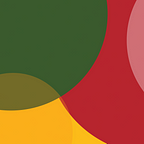The Age-old Struggle for Truth
“Nothing in life is to be feared, it is only to be understood. Now is the time to understand more, so that we may fear less.”
— Marie Curie
We often fail to appreciate how inextricably linked the present is to the past, and that leads to a neglect of valuable historic information, causing the reappearance of troubles that have been already solved.
The issue of how to make sense of the complex world we inhabit seems to be a recent instance of this phenomenon.
It is not a new issue by any means, and has haunted humans ever since we’ve evolved the gift of reason.
One of the big branches of philosophy is dedicated to this problem, which can be stated as how to separate right from wrong, or rather truth from non-truth.
More simply: how do we know things, and what does knowledge look like?
This branch goes by the eerie name of Epistemology, started by the Greeks.
Arguments in this philosophical tradition are of surprising complexity, and are tough to mingle with, dating back to the likes of Plato, Aristotle, and the pre-Socratics. A can of worms awaits those brave enough to dedicate their energy to exploring its full glory.
But why should you, or anyone? Well, the discussions are of crucial importance to deciding how to pick beliefs from the endless stream of stupid ideas in your head and others’.
And beliefs are what determine your decisions and behavior. Truthful beliefs produce good decisions, and good outcomes. False beliefs will lead you (and entire nations with you) to error and tragedy.
The good news is, you don’t have to start from a tabula rasa. A host of brilliant individuals have left a trail of breadcrumbs that leads to the consensus that has allowed our ancestors to build the modern world and all of the jaw-dropping wonders of it: the scientific method.
It dictates that nature is the final judge of truth, and that ideas are nothing more than worthless hypothesis, unless relentlessly tested against objective reality, repeatedly and by different people.
It is clear to anyone that glances over the trajectory of humankind that things really started picking up since we started using this to determine valid knowledge. As such, the proof is in the pudding (and on the Moon), and anyone would be hard-pressed to dispute the efficacy of good science.
Given its accomplishments, you’d think that such a framework would be constantly celebrated, to the likes of having monuments erected in its homage, and all children being force-fed it through schools’ curricula, being denied further advancement until demonstrating their skill in applying it over and over again.
And although some of that does happen, it isn’t nearly to the extent that you would expect in the Western world, its birthplace. And regular folk still seem pretty lousy at it.
The reason for that, I believe, lies in the 20th century.
After the great tragedies of fascism, fear of deterministic convictions arising has led to a downplaying of the effectiveness of science and a post-modern relativistic interpretation of reality.
The image of an ascending mushroom cloud has left science with a bad rep.
This, in turn, has allowed mysticism and pseudo-scientific hogwash to make a comeback. Which has left people more ignorant and confused.
However, one should note: evil and malice are separate from the scientific method, which is, by definition, morally neutral. The mushroom cloud is at the same time both a testament to science’s cold efficacy, and to the dark human potential for destruction.
But humans also have the potential for good and virtue (which is less often remarked on), and there are just as many — arguably much more — virtuous stories of scientific accomplishment. These should be celebrated more often, especially since their graces adorn our every waking moment, and routinely save the lives of the people we love.
Good science makes a person free, competent, hard to manipulate and withholding of judgment and prejudice.
A lack of a good framework to guide critical thinking, on the other hand, leaves people facing a terrifying abyss of subjectivity, and is definitely related to the alarming rates of depression and anxiety in Western society. Let alone the culprit of misguided decisions and public policy.
History is full of examples of horrors that could’ve been avoided if we had the proper knowledge at hand, and just weren’t so ignorant. Doctors not washing their hands prior to surgery until germ theory was discovered is one fine example.
It is important to know what science is for. It is not a source of spiritual meaning, or answers on morality or the value of human life.
It is, instead, a fine tool for making all that virtue manifest, should you care to master and apply it.
And you should.
